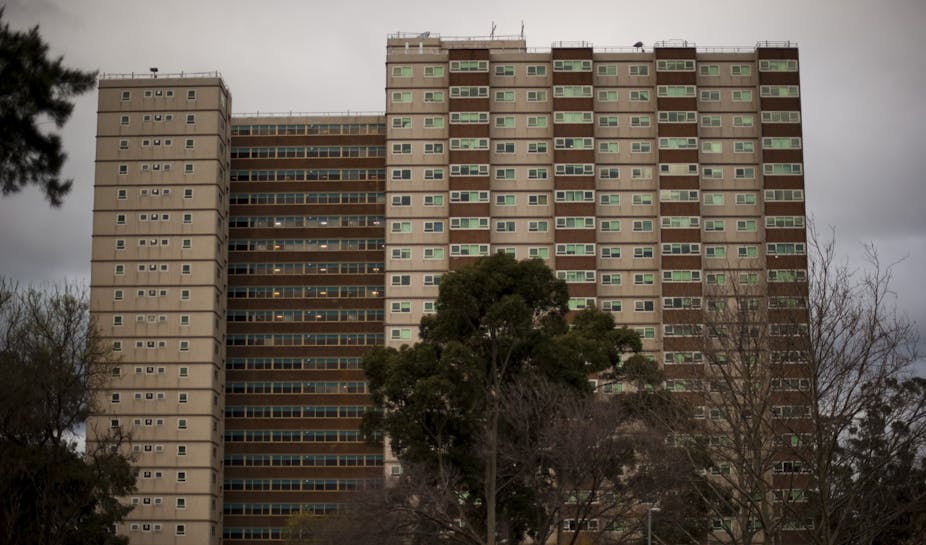Imagine being the mother of a young autistic boy, whose violent outbursts had caused $30,000 of damage to your rented home - but being too afraid to ask anyone for help for fear of having your son taken away.
That was one of the stories shared with us as we travelled around Melbourne and country Victoria over the past 18 months, putting together a new report released today as part of Australia’s first comprehensive study of Indigenous civil and family law needs.
While most Australians are well aware of entrenched criminal justice issues facing Indigenous men and women, such as the disproportionately high rates of imprisonment, our new research shows that those legal problems go well beyond police and prisons.
Resigned to racism
I have worked with Indigenous Australians and community groups for more than two decades, including contributing to the Stolen Generations Inquiry and the Royal Commission into Aboriginal Deaths in Custody.
Yet even with that experience, it is still shocking to listen to people’s stories of being treated as a lesser Australian, and to hear in their voices a deep sense of resignation to living with discrimination.
Of the 161 Aboriginal women and men we spoke to across Victoria - in Bairnsdale, Bendigo, Shepparton, Heidelberg, Fitzroy, Framlingham, Robinvale and Swan Hill - three in every ten (29%) had experienced what they perceived as racial discrimination over the last couple of years – in the workplace, with police, in health services, taxis, shops and in their neighbourhoods.
As one woman in Robinvale told us, “you are going to face it no matter where you are… at work, at home, at school, wherever”, and more bluntly by another woman in Shepparton:
I’m sick of talking about it. We’ve said so much.
Perhaps not surprisingly, only one in ten people (11.6%) we talked with had tried to obtain advice about discrimination.
And unfortunately, we found that even where they had sought help, it proved difficult to obtain assistance for civil law matters. The Aboriginal legal services, for example, overwhelmingly focus on criminal law because of resource restrictions and service agreements.
The Civil and Family Law Needs of Indigenous People in Victoria report is the latest in a series of reports. The problems we found in Victoria were similar in some cases to what we have already found in the Northern Territory and NSW, although housing was an even bigger problem in the NT. Reports for Queensland and Western Australia will be released next year.
Housing and child protection
Housing and child protection emerged as two of the biggest problems facing Aboriginal Victorians.
More than four in ten of the people we spoke with had tenancy problems, mostly over repairs and maintenance, rental debts and over-crowding. Only one in five had sought assistance.
Most tried to struggle on alone with their problems, like the mother of the autistic boy mentioned above. She was living in public housing and facing a huge damages bill; it was only when a community worker approached her to offer help that she was able to share her fears of losing her son to child protection if she spoke up to seek the assistance he needed.
It’s a fear shared by many other Aboriginal parents. The removal of Aboriginal children from their families has risen by 80% over the last decade in Victoria, a story repeated in other parts of Australia.
While on paper Victoria has quite progressive legislation relating to Aboriginal child protection, our work revealed widespread breaches of the law: parents coerced into consent agreements without legal advice; how the requirement for cultural plans for Aboriginal children was either ignored or dealt with perfunctorily; poor knowledge by parents of their legal rights; and little access to appeal mechanisms.
As one woman from Bendigo focus group said:
…those [Department of Human Services] workers, they are lawyered up, they get all the information. They stand with their lawyer to take you out.
Cutting legal lifelines
Debt and consumer problems were also prevalent among Aboriginal people. One-third had reported being threatened with legal action or had legal action commenced for a debt. Many of the debts were directly connected to consumer issues.
Low levels of consumer and financial literacy means that people are signing-up to contracts that are not properly understood, including for utilities, mobile phones and white goods. Aboriginal people appear to be more susceptible to high-pressure telephone and door-to-door sales. One elderly woman reported being signed–up to three different electricity suppliers. Added to this are unscrupulous traders that prey on Aboriginal communities, particularly in regional areas.
Against this backdrop of ongoing discrimination and inadequate legal support, federal attorney-general George Brandis has confirmed the government plans to amend the Racial Discrimination Act by changing provisions relating to racial vilification.
Even more of a worry is the prospect of a A$42 million cut in federal government funding to Indigenous legal services, which would only further exacerbate the absence of justice for Indigenous people across Australia.
New Northern Territory Senator Nova Peris and others have questioned those proposed cuts. It’s now unclear whether they will go ahead.
Based on our research, if those cuts do proceed, it is safe to predict this: that too many Indigenous Australians will remain second-class citizens in their own country, unable to find out how to use the law for their own protection, while remaining the object of law when it comes to criminalisation and incarceration.

